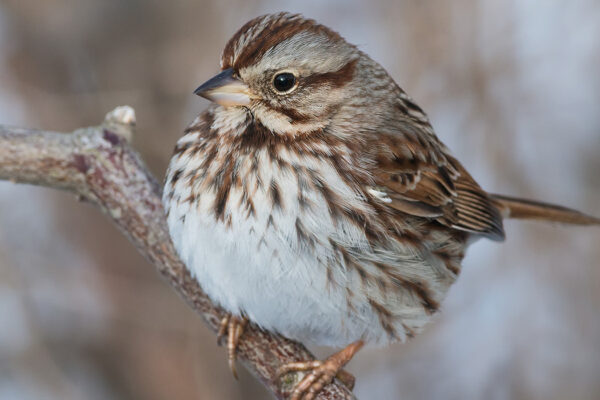
A study in Nature Communications by biologists at Washington University in St. Louis and The University of Texas at Austin reveals clues about the relationship between temperatures and changes in the size of warm-blooded animals and their body parts.
The new research offers important clues about the way that animals, particularly birds, have adapted to changes in ambient temperatures, according to Justin Baldwin, a PhD candidate in biology in Arts & Sciences.
The statistical study looked at nearly 7,000 species of terrestrial non-migratory birds — almost two-thirds of all bird species — and focused on how bird morphology has evolved along gradients in ambient temperature.
Two widely accepted “rules” in biology — Allen’s and Bergmann’s rules — indicate that as local temperatures change, animals are likely to adjust their heat transfer capabilities by changing the size of their bodies or the length of their extremities. The new study shows that while the patterns predicted by these theories do indeed occur in the wild, the mechanisms complement each other within avian lineages — so bodies and extremities do not need to change as much as originally expected.
“Biologists have been arguing about these rules for over 150 years as most researchers have only tested one rule at a time,” said Baldwin, who is the first author of the study. “Our study clarifies some of this controversy, as we show that most bird families have managed to adapt to extreme temperatures by changing both their bodies and bills simultaneously.
“Even small changes, occurring together, can really add up,” Baldwin said.
Read more on The University of Texas at Austin website.


